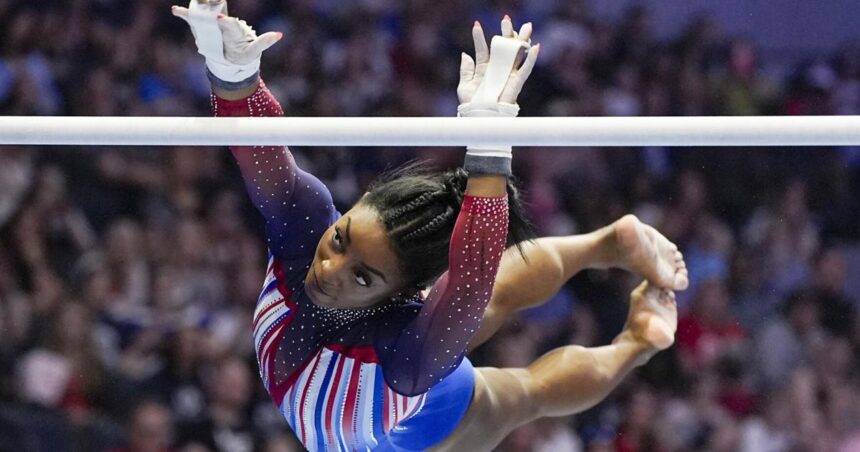When Naomi Osaka competes at Roland Garros during the Paris Olympics, it signifies more than just a high-stakes competition for the tennis star.
For Osaka, a four-time grand slam champion, this is a significant milestone in her journey after returning to tennis earlier this year following a break to focus on her mental health and motherhood.
Joining gymnastics legend Simone Biles and track and field star Sha’Carri Richardson on the Olympic stage, these Black women athletes have been vocal about mental health, public criticism, and personal challenges. Osaka and Biles took time away from their sports to prioritize their mental well-being, while Richardson returned to competition after a controversial ban from track and field.
Despite facing different struggles, their stories offer a unique perspective on Black women athletes.
People are also reading…
“I always think about this: We weren’t born playing our sport,” Osaka recently told The Associated Press. “We were born the same way as everyone else. I wasn’t born holding a racket. We’re humans first, and we’re athletes as a profession.”
This fundamental idea often gets overlooked when it comes to Black female athletes, who face the intersection of racism and sexism, according to Ketra Armstrong, a professor of sport management at the University of Michigan.
Armstrong emphasized the importance of elevating these athletes to challenge preconceptions about Black women.
Biles, Osaka create space for women like them
Biles took a step back from the all-around gymnastics competition at the Tokyo Games to focus on her well-being, citing the pressure she felt.
After a two-year break, Biles returned to the international stage in 2023 and continued to dominate, winning titles and excelling at competitions.
Armstrong noted that many athletes, like Biles, realize the importance of self-care even amid their drive to win.
The comebacks of Osaka and Biles at the Olympics are significant in providing a platform for vulnerable Black women athletes and challenging stereotypes, said sports historian Victoria Jackson.
Jackson highlighted the innate leadership qualities of Black women athletes and the added pressure they face to make a positive impact on their communities.
While acknowledging the progress, Jackson expressed the ongoing burden faced by Black women athletes.
These challenges are not unique to athletes, as many Black women in various fields experience similar pressures, as Shaneka Stanley, a senior human resources consultant, shared.
Stanley highlighted the multiple roles she fulfills in her personal life and the constant expectation to excel.
‘Condition for brown and Black women is much harder’
Richardson faced intense scrutiny after testing positive for marijuana, raising questions about race, fairness, and discrimination in sports.
Tarlan Chahardovali, an assistant professor, pointed out the harsher conditions Black women athletes often endure in the spotlight.
Despite the challenges, Richardson persevered and is now poised for Olympic success after a remarkable season in track and field.
Throughout her journey, Richardson has emphasized resilience and self-care as key elements in her success.
Reflecting on the experiences of Biles, Osaka, and Richardson, diversity and inclusion manager Marisa Tatum-Taylor praised their courage to prioritize their well-being.
Associated Press Writer Claire Savage and AP Sports Writers Howard Fendrich and Eddie Pells contributed to this report.





